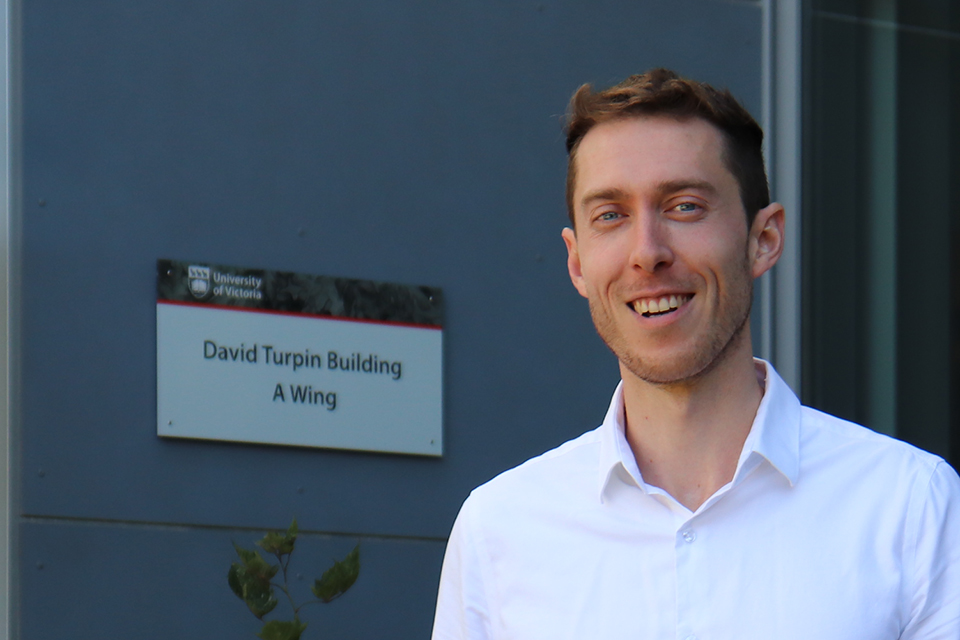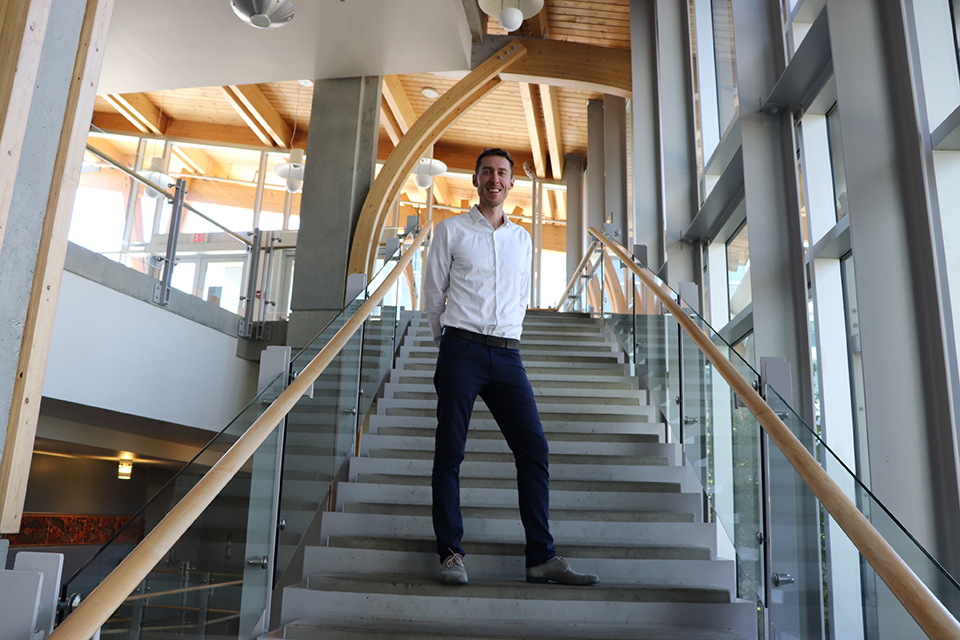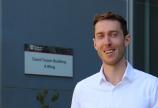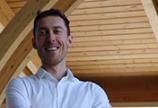Pure math takes PhD across the world
- Vimala Jeevanandam

Discovering pure mathematics
Nine years after transferring to UVic as an undergraduate student, Chris Bruce is leaving with a PhD in Mathematics and a prestigious NSERC Banting Postdoctoral Fellowship.
In that time, he has proven himself to be an exceptional mathematician.
Chris flips easily between being sharply focused when thinking of a specific problem and being very diffused in his unbounded curiosity for all things mathematical. Early on I stopped viewing him as a student and started thinking of him as a younger collaborator.
—Marcelo Laca, Chris Bruce’s supervisor and UVic mathematics professor
Born and raised in Victoria, Bruce started his undergraduate degree at Camosun College, and had quite a different path in mind. “I thought I’d major in business or economics,” he says. He had already started an online business, selling parts for mountain bikes. But after transferring to UVic and taking an introduction to abstract algebra course, he knew his path was changing.
Math has given me the room to be creative and freedom to explore ideas and questions, but within the guidelines of strong and logical structure. Within that structure, there is so much symmetry and beauty to discover.
—Chris Bruce, UVic PhD in mathematics, class of 2020
He explores connections between two areas of mathematics – algebraic number theory, an ancient field of mathematics which deals with prime numbers, rational numbers, and their generalizations, and operator algebras, a relatively new field of math that was originally developed to model systems in quantum physics.
“If you can come up with a strong enough connection between these two areas, you can give new approaches to solving problems and potentially solve some of the world’s most famous unresolved problems in pure mathematics, such as the Riemann hypothesis or Hilbert's 12th problem.”
Building global collaborations

While one might imagine mathematics as being a solitary activity at a desk, Bruce’s experiences belie that.
“Working with people—discussing problems and having a back and forth of ideas, working on a proof—that is the most enjoyable part of mathematics for me,” Bruce says. To that end, he started a graduate-level seminar in his department, giving graduate students, post-docs and visitors a chance to present to their peers.
During his undergraduate degree, he completed a semester in Moscow. Since then, he’s taken courses at the University of Wollongong in Australia, attended workshops at the Hausdorff Research Institute for Mathematics in Germany, and developed collaborations in the United Kingdom and Japan.
Staying at UVic throughout my graduate studies allowed me to continue benefitting from working with a group of mathematicians with a strong area of expertise in operator algebras, and a supervisor that I really enjoyed working with and continued to learn from. But the many trips abroad allowed me to expand my academic network and gain exposure to other areas of mathematics and new ideas.
—Chris Bruce, UVic PhD in mathematics, class of 2020
Winning the Banting Fellowship
Once Bruce is able to travel internationally, he’ll be continuing onto Queen Mary, University of London, with a prestigious NSERC Banting Postdoctoral Fellowship, a prize which provides the best applicants with $70 000 per year in funding for two years.
I’m excited to start my new life in the UK, so my feelings about leaving Victoria are bittersweet. Even though being a PhD student can be stressful, I really enjoyed my time at UVic. Math is a small department, which also creates a sense of community. I enjoyed discussions with my supervisor, seminars, getting feedback from various people. It’s good to find a place where you fit in well.
—Chris Bruce, UVic PhD in mathematics, class of 2020


